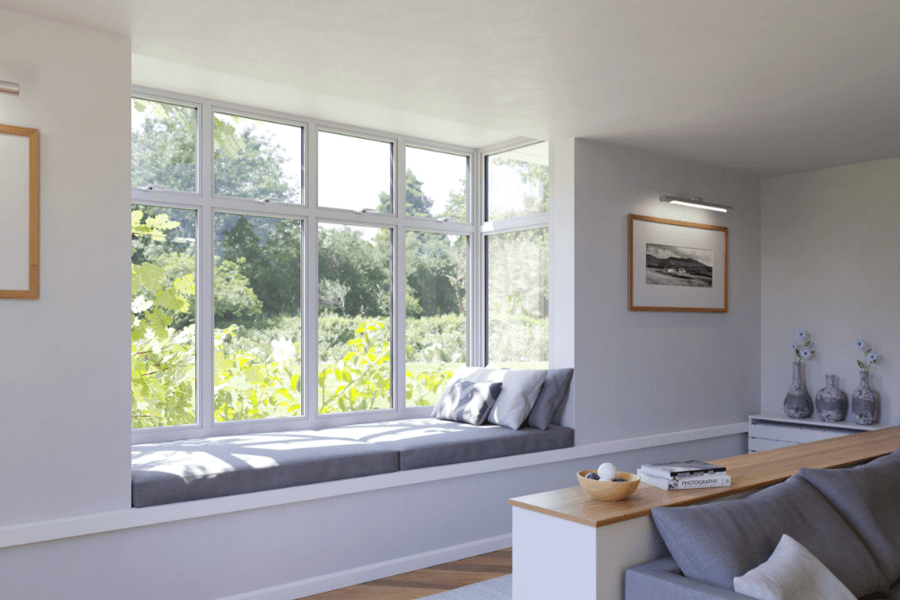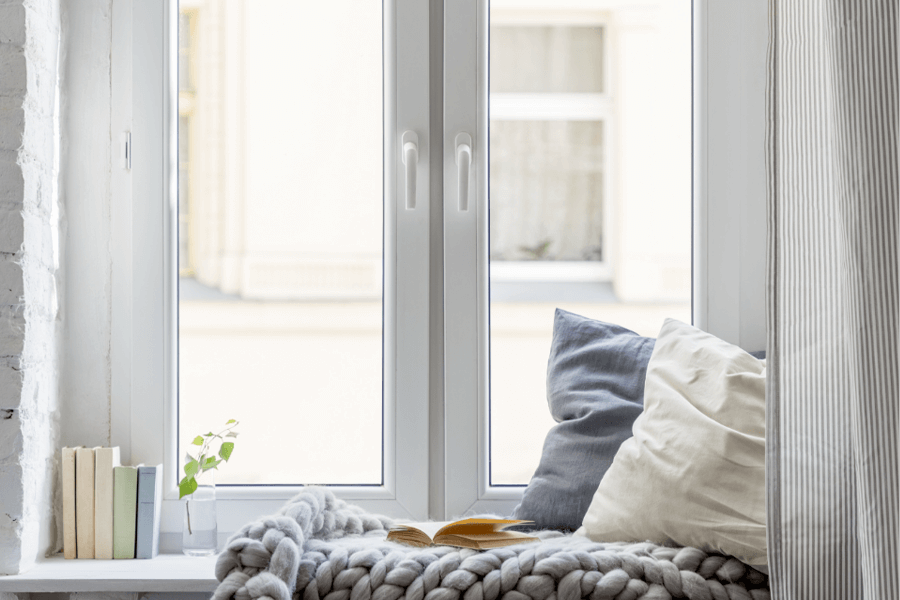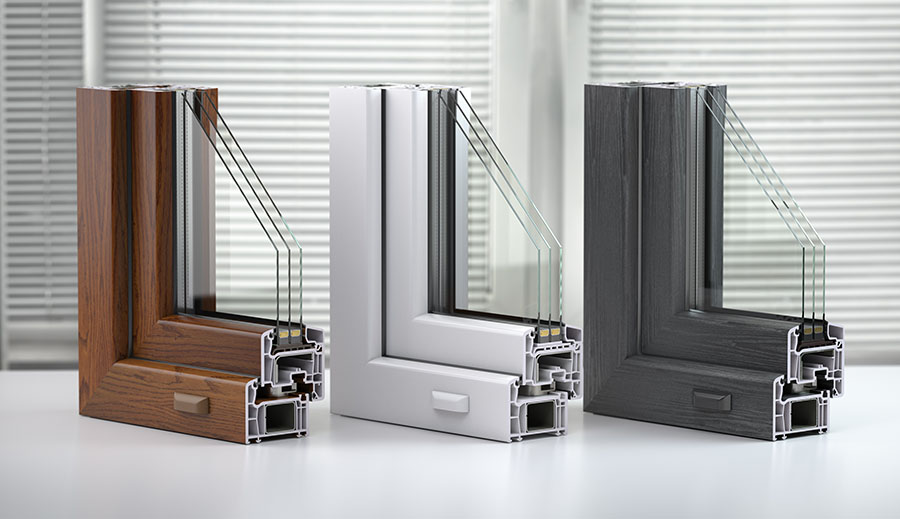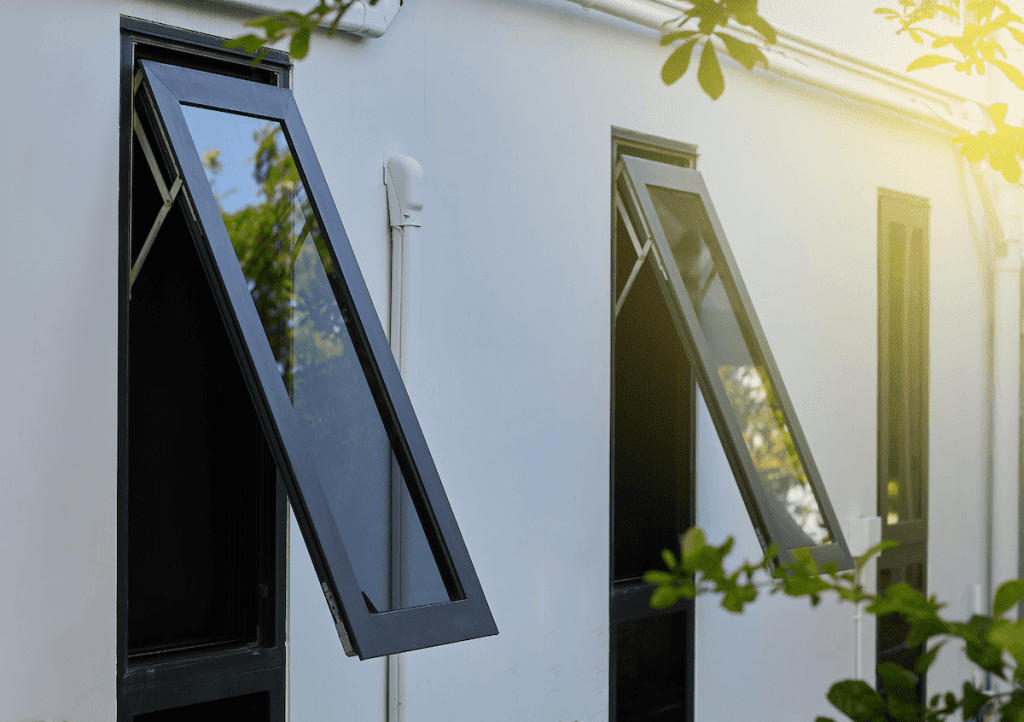
Are you tired of watching your heating bills climb every winter, or feeling a chilly draught sneaking through your windows? You’re not alone. With energy costs in England and Wales on the rise, more homeowners are looking for ways to make their homes warmer, greener, and more cost-effective.
At Boston Trade Frames, we’ve spent over 35 years helping people achieve just that with our energy efficient windows and doors. But what actually makes a window or door “energy efficient”, and how can you tell if it’s right for your home? Let’s break it down.
What are energy efficient windows?
Energy efficient windows are specially designed to reduce the amount of heat that escapes from your home in winter and to keep unwanted heat out in summer. They use a combination of advanced glazing, well-insulated frames, and airtight seals to cut down on heat loss, draughts, and even condensation.
The result? A cosier home that uses less energy for central heating, helping you save money and shrink your carbon footprint at the same time.

Why upgrade to energy efficient windows and doors?
Lower energy bills
Up to 30% of a home’s heating energy can be lost through old or inefficient windows. By installing energy efficient windows, you could see a significant drop in your energy bills.
More comfort
No more cold spots or draughts. Efficient windows help maintain a stable indoor temperature throughout the year, making your home a comfortable retreat whatever the weather.
Reduced carbon footprint
Using less energy means fewer carbon emissions, which is good news for the environment and future generations.
Less condensation
Modern glazing and sealed units reduce the risk of condensation, which can help prevent mould and moisture problems.
Increased property value
Energy performance is a key selling point for today’s buyers, and new windows can boost your home’s appeal.
Glazing options: Double, triple, and more
When it comes to energy efficiency, the type of glazing you choose makes all the difference.
Double glazing
The most common choice in the UK, double glazing uses two panes of glass separated by a sealed gap filled with an inert gas like argon. This gap acts as insulation, reducing heat loss and keeping cold air out. Standard double glazed windows can achieve impressive energy ratings and U-values as low as 1.4 W/m².K.
Triple glazing
For those seeking the ultimate in insulation, triple glazing adds a third pane of glass and a second gas-filled gap. This extra layer further reduces heat loss and can achieve U-values as low as 0.8 W/m².K, making it the most energy efficient glazing option available. Triple glazing is especially popular for north-facing rooms, exposed locations, or anyone keen to future-proof their home.
Low-emissivity (Low-E) glass
Low-E glass features a microscopically thin coating of metal oxide on one of the internal panes. This clever technology reflects heat back into your home, so you use less energy to stay warm while still letting in plenty of natural light.
Inert gas fills
The space between the panes in double or triple glazing is usually filled with argon or, in some premium products, krypton. These gases are less conductive than air, reducing the amount of heat that escapes through your windows.
Frames: uPVC, aluminium, or composite?
The frame is just as important as the glass when it comes to energy efficiency. Here’s a quick look at your options:
- uPVC: The most popular choice, uPVC frames are affordable, low maintenance, and offer excellent insulation.
- Aluminium: Modern aluminium frames now feature a “thermal break” – an insulating barrier that stops heat from passing through the frame. They’re strong, slim, and ideal for contemporary designs.
- Composite frames: These combine the best bits of different materials, such as the warmth of timber on the inside and the durability of aluminium outside, for a long-term, energy efficient solution.
How are energy efficient windows rated?
In the UK, the energy performance of a window is measured by its Window Energy Rating (WER), a system developed by the British Fenestration Rating Council (BFRC). Windows are rated from A++ (the most energy efficient) down to G. For new windows, regulations require a minimum WER of B and a U-value of 1.2 W/m².K or better. Look for the BFRC label and the Energy Saving Trust Recommended logo to be sure you’re getting the real deal.
What about building regulations?
All new or replacement windows and doors in England and Wales must comply with strict building regulations. These cover not just energy efficiency, but also ventilation, fire safety, and security. For windows, this means meeting minimum standards for U-value and WER, as well as providing adequate ventilation and emergency escape routes where required. At Boston Trade Frames, we ensure every installation meets or exceeds these standards, giving you peace of mind from start to finish.
How do energy efficient windows help reduce condensation?
Energy efficient windows use better glazing and sealed units, including sheets of glass panes, to keep the inner pane warmer, resulting in less heat escaping, which helps to reduce the amount of energy needed to maintain a comfortable indoor environment in the long term. This means less moisture in the air condenses on the glass, reducing the risk of condensation and mould.
Choosing the right installer
It’s not just about the product – proper installation is crucial for achieving the most energy efficient results. Always choose a certified installer who can provide the right certificates and guarantees. At Boston Trade Frames, our experienced team handles everything from initial survey to aftercare, so you know your investment is in safe hands.
The bottom line
Switching to energy efficient windows and doors is one of the smartest home improvements you can make. You’ll enjoy a warmer, quieter, and more comfortable home, lower energy bills, and the satisfaction of knowing you’re doing your bit for the environment. Whether you’re replacing old double glazing, or planning a full renovation, Boston Trade Frames has the expertise and range of products to help you make the right choice.
Ready to improve the energy efficiency of your home? Contact Boston Trade Frames today for expert advice and a free, no-obligation quote. Let’s help you stay warm, save money, and enjoy your home to the fullest.
More from Boston Trade Frames
The Boston Trade Frames Difference: Family Values in Window Manufacturing
Composite doors: A guide for trade installers on modern home solutions
Navigating Lincolnshire Conservation Areas: 5 Essential Tips for Window Installers
Back to news


